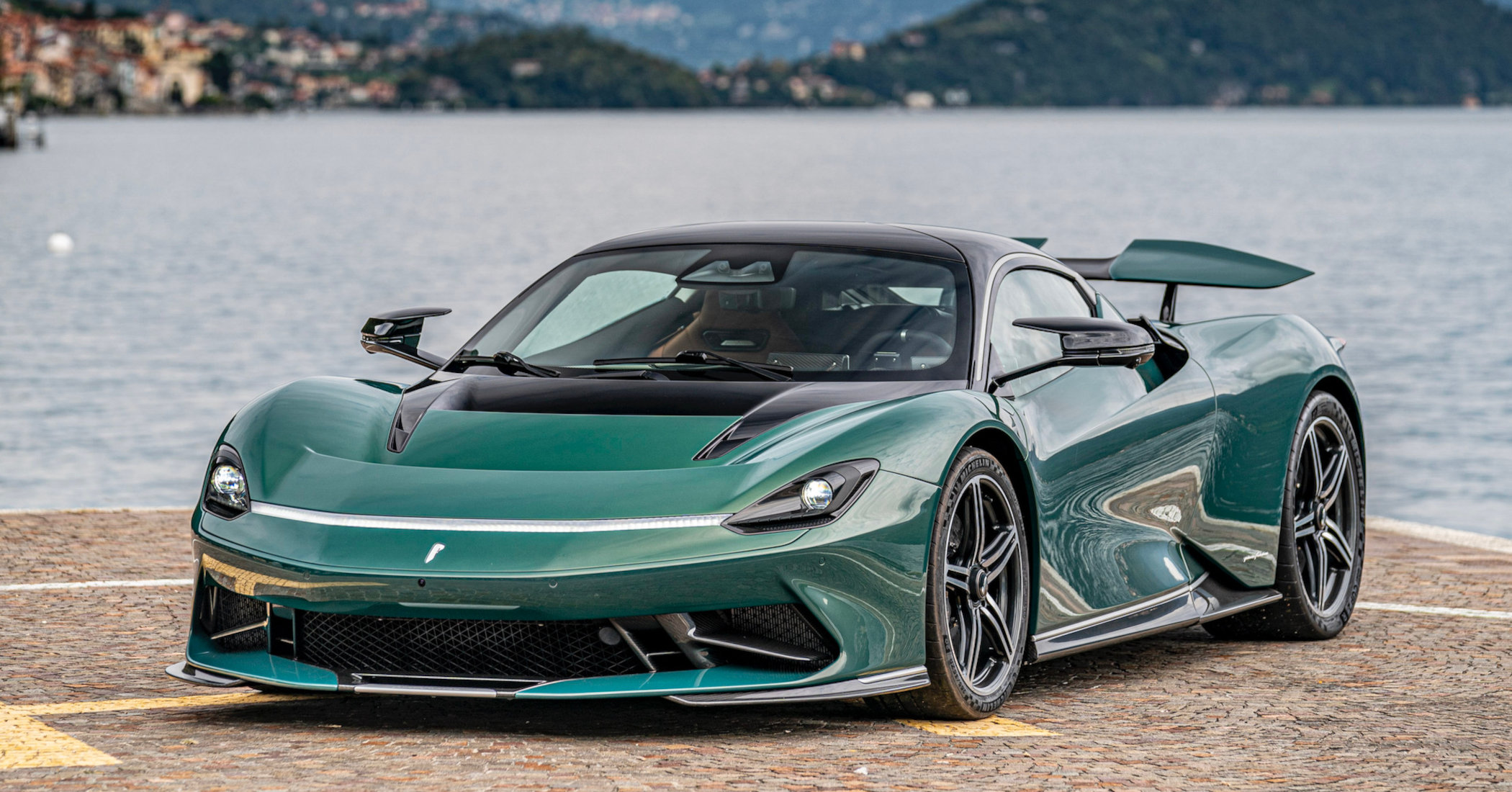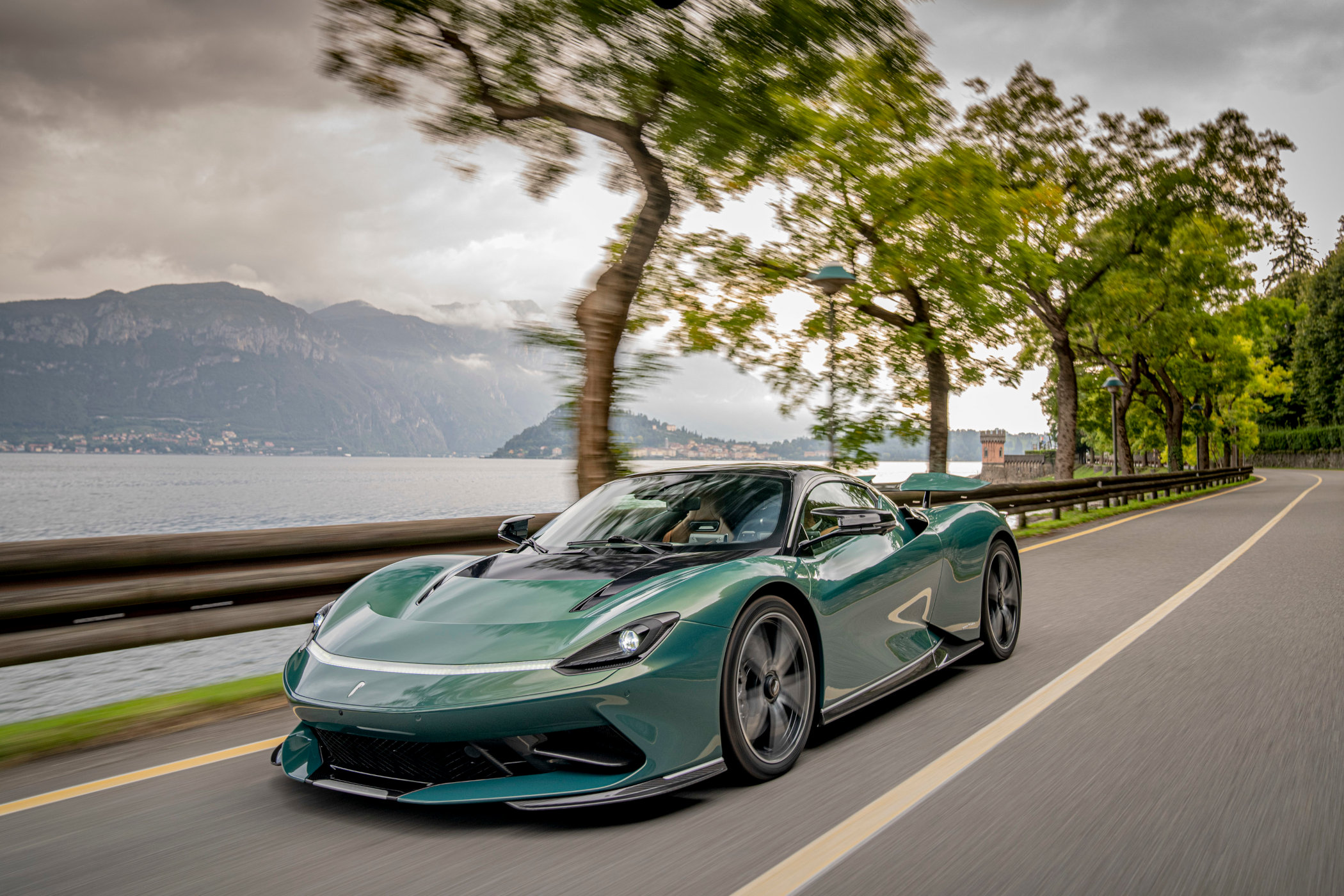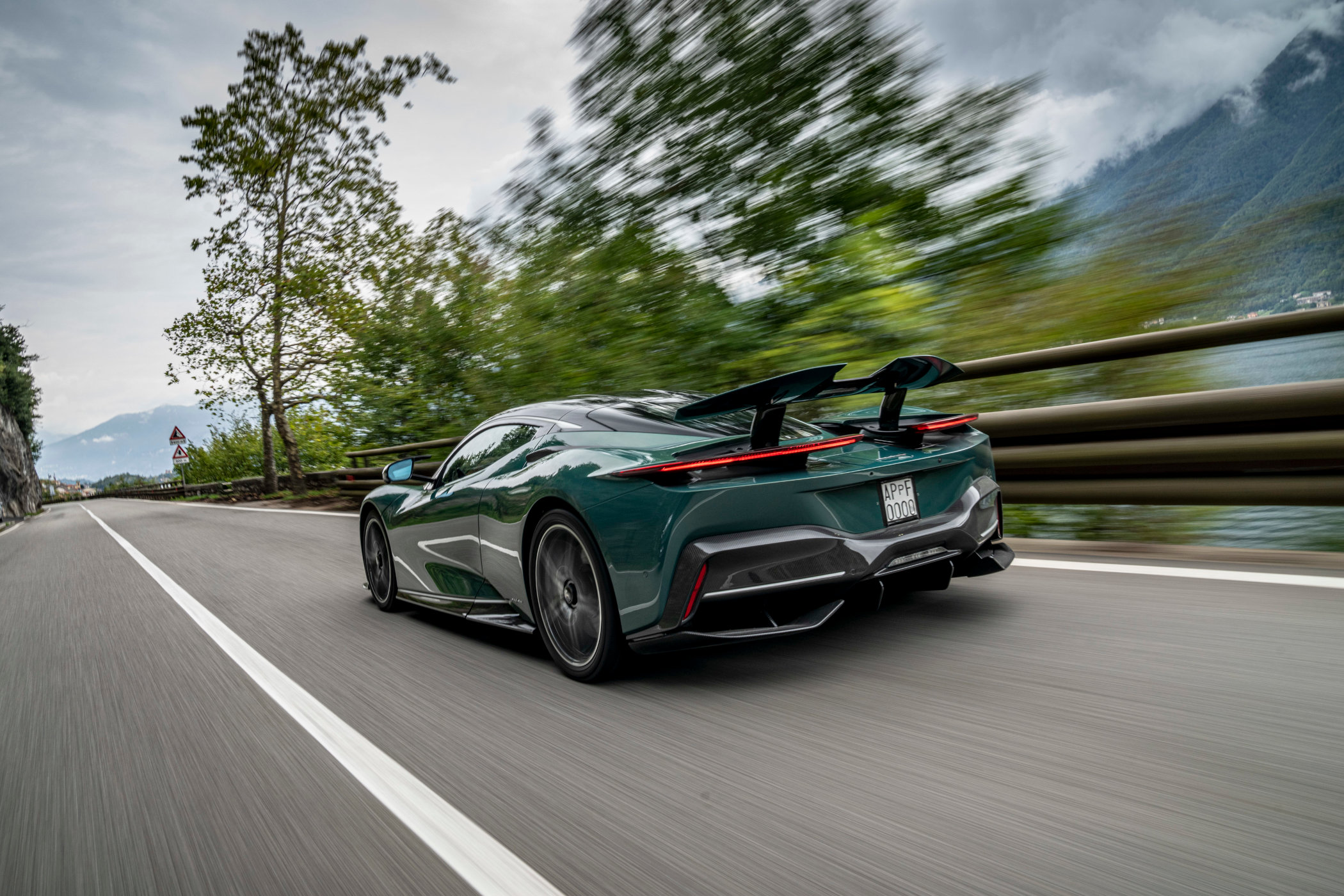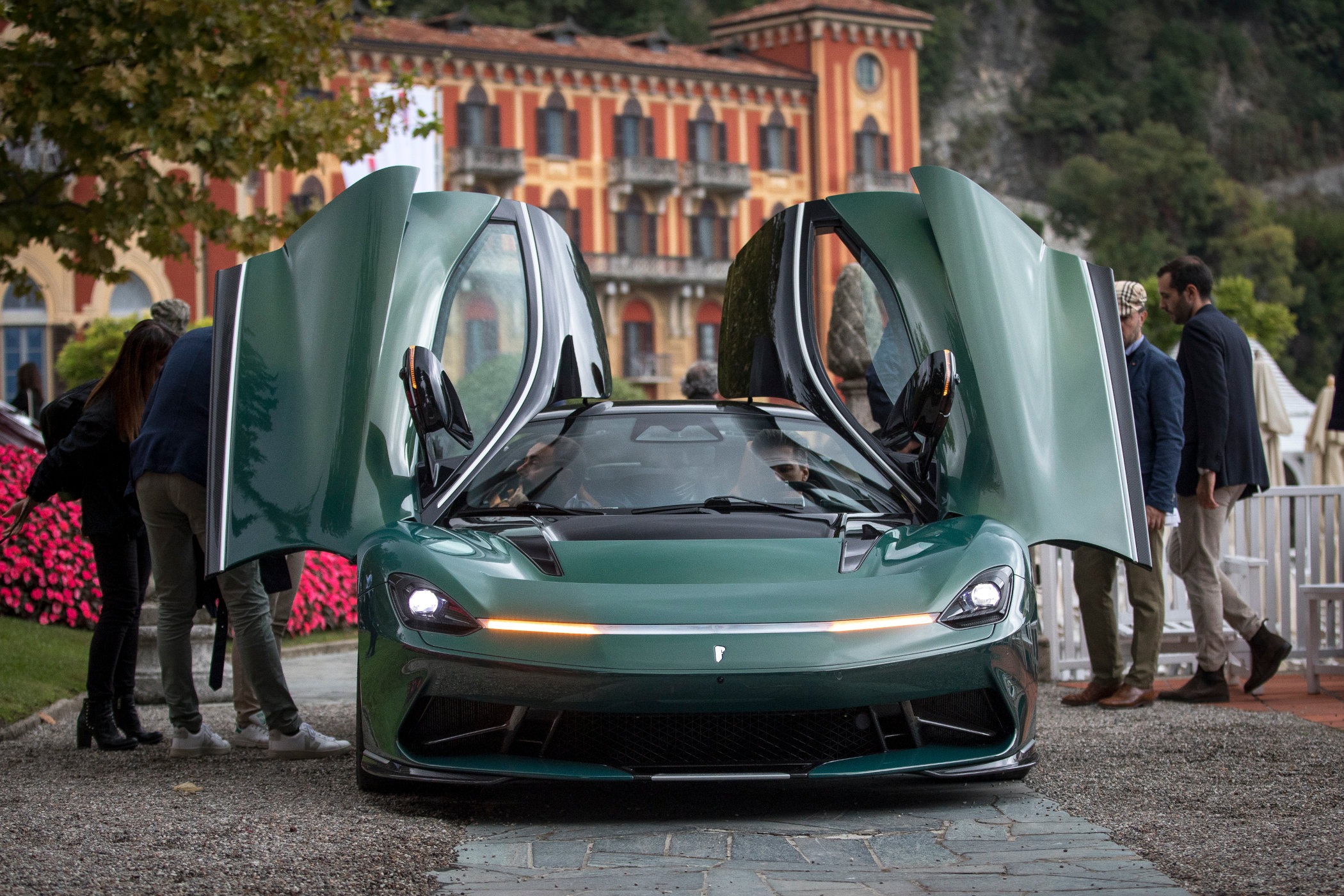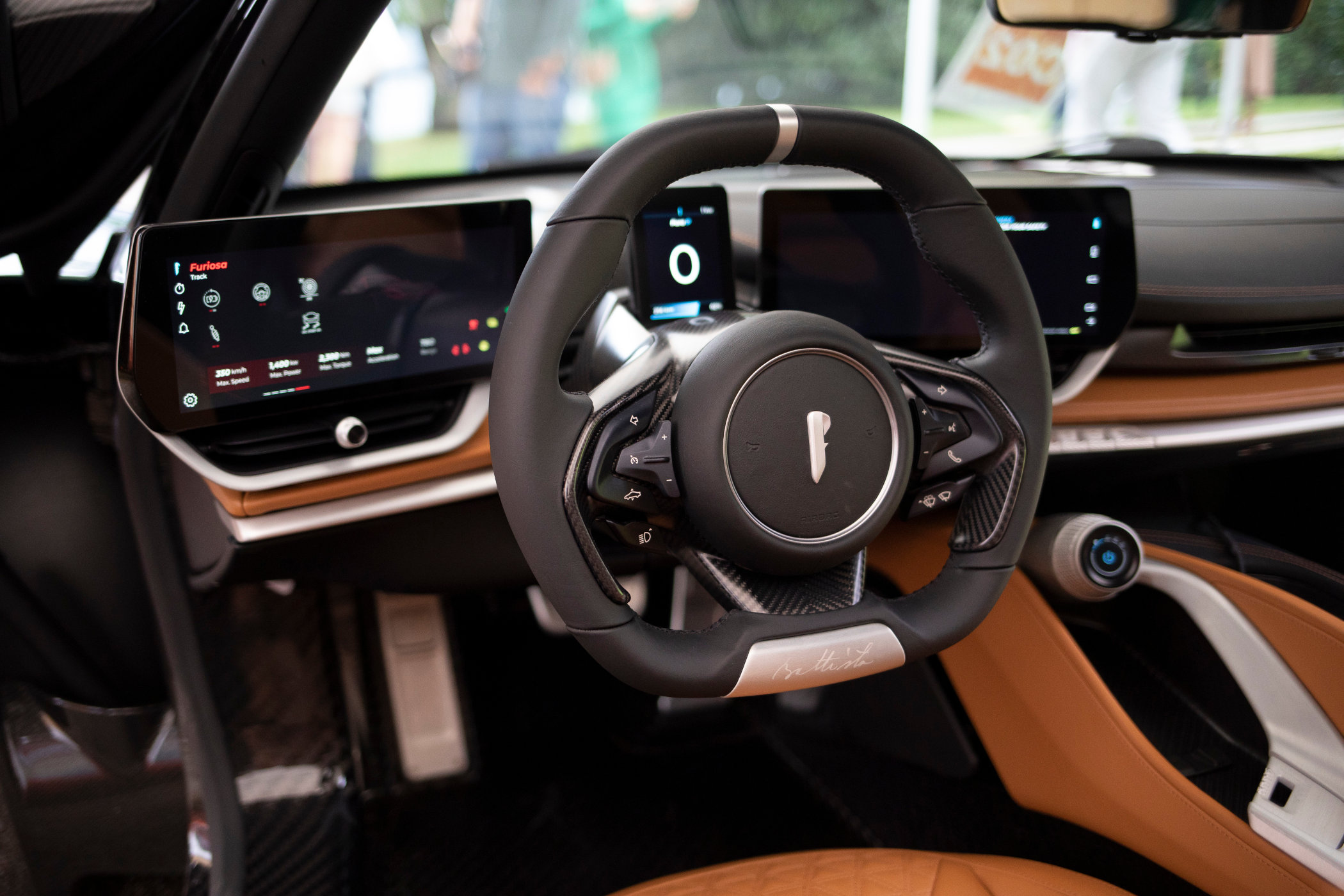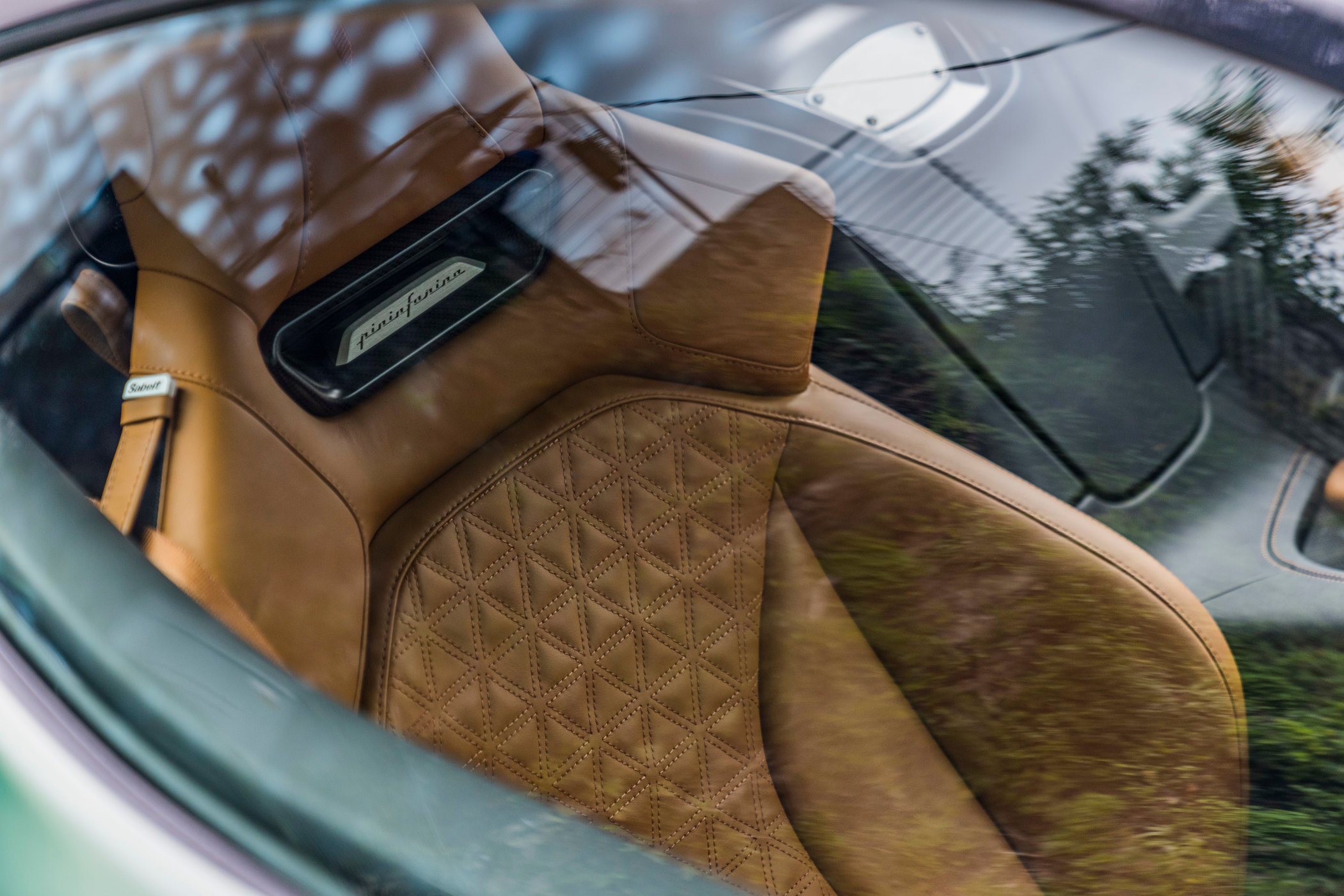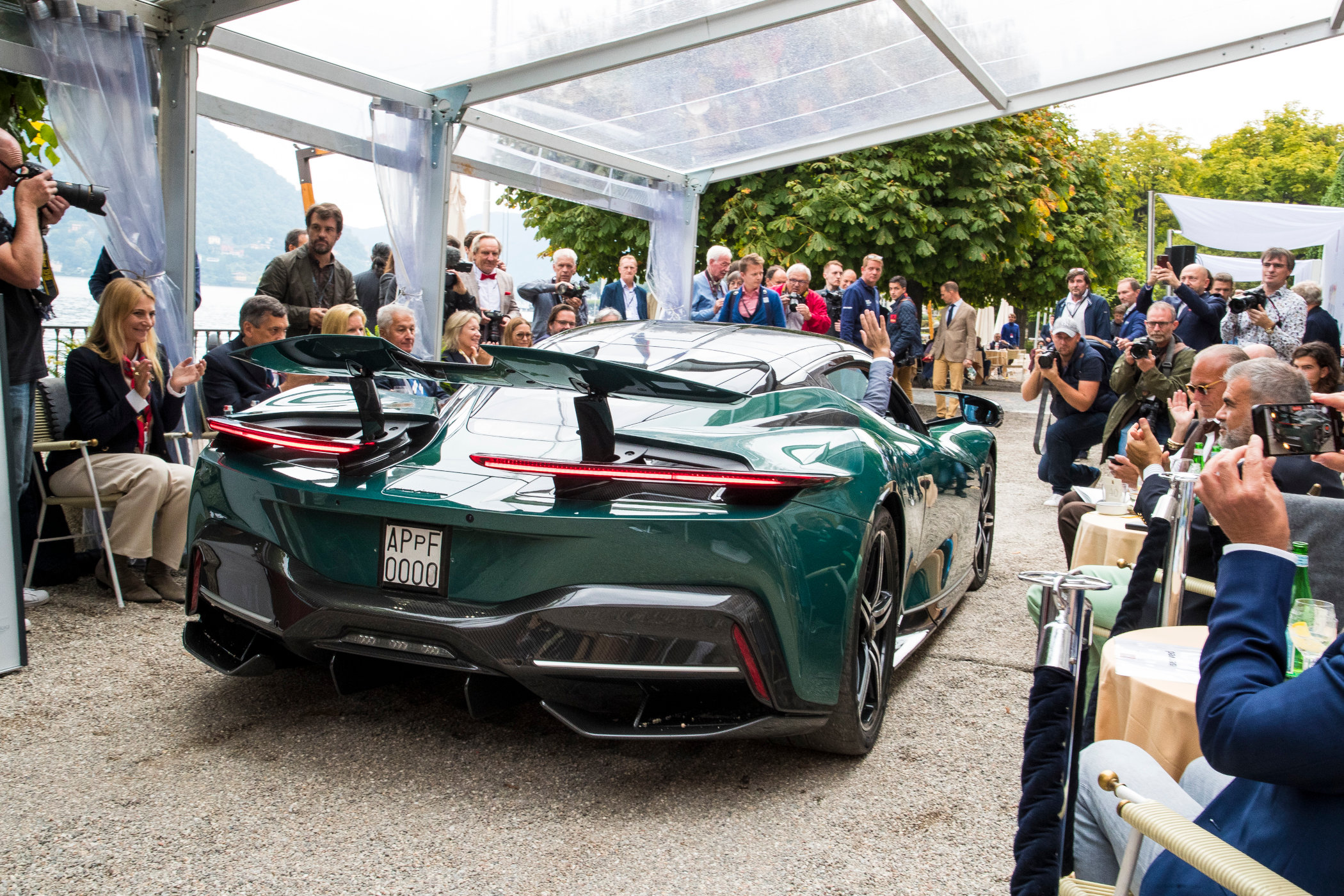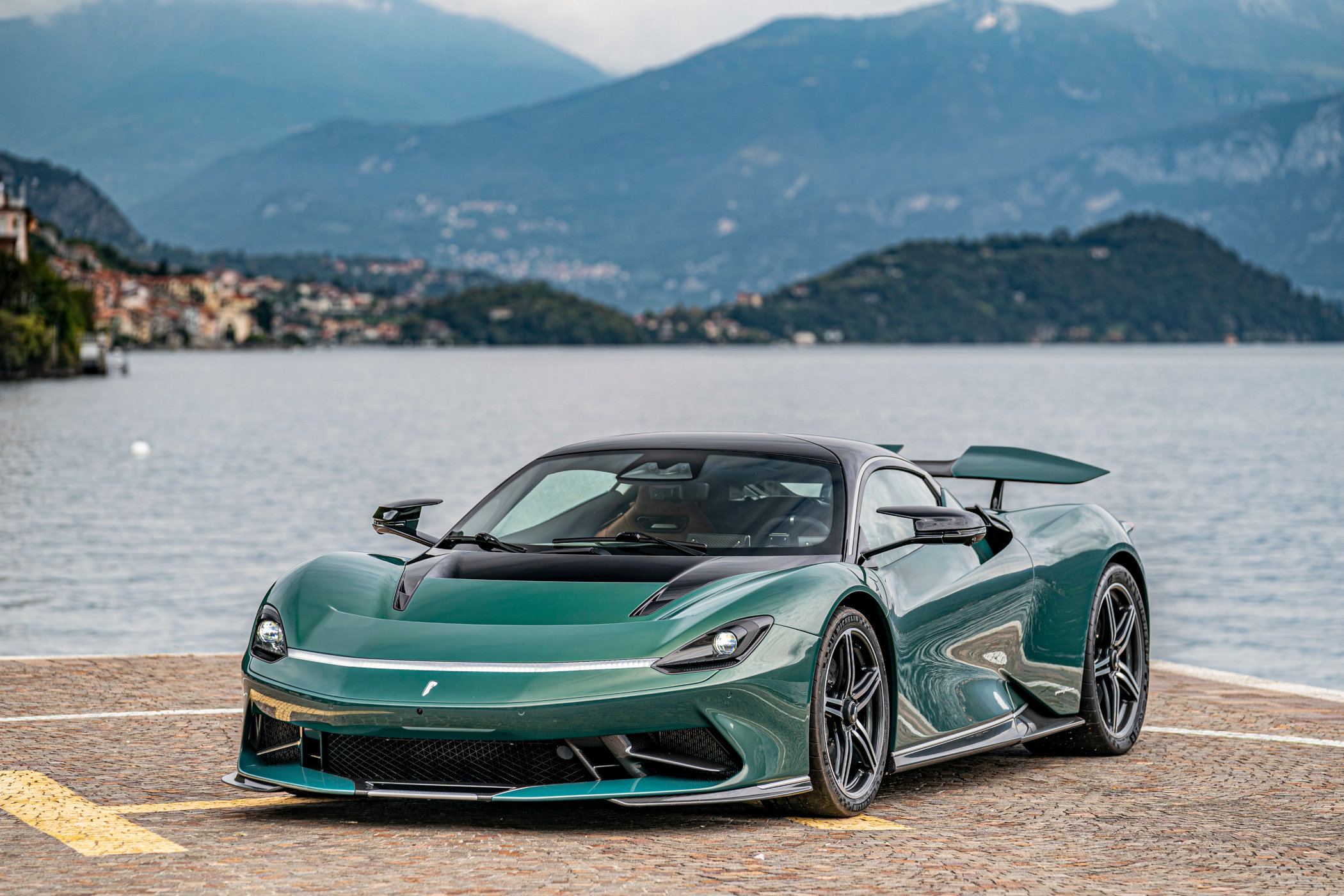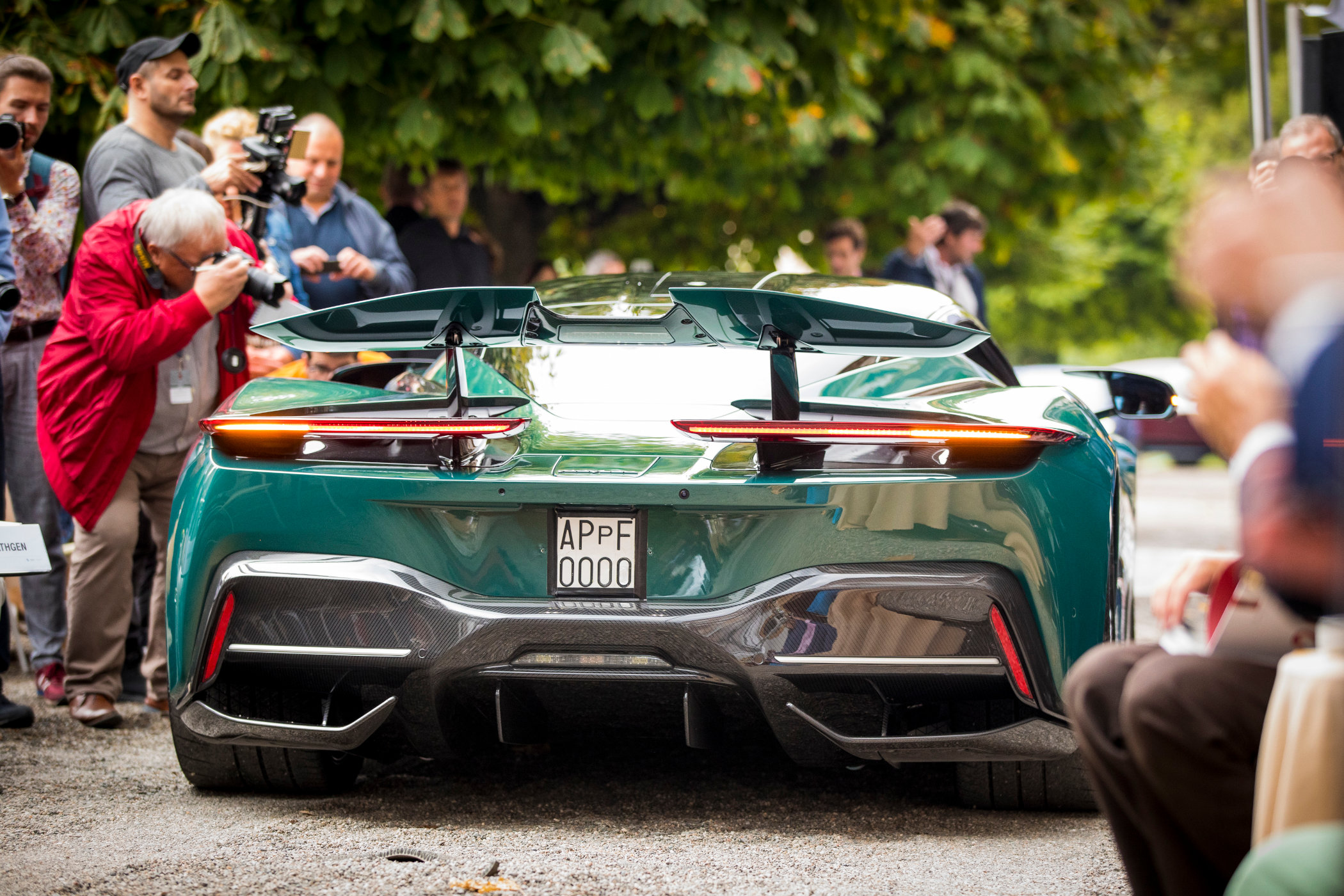The Automobili Pininfarina Battista, Italy’s Most Powerful Sports Car Ever Made.
Crowned the best concept car or prototype during the Concorso d’Eleganza Villa d’Este
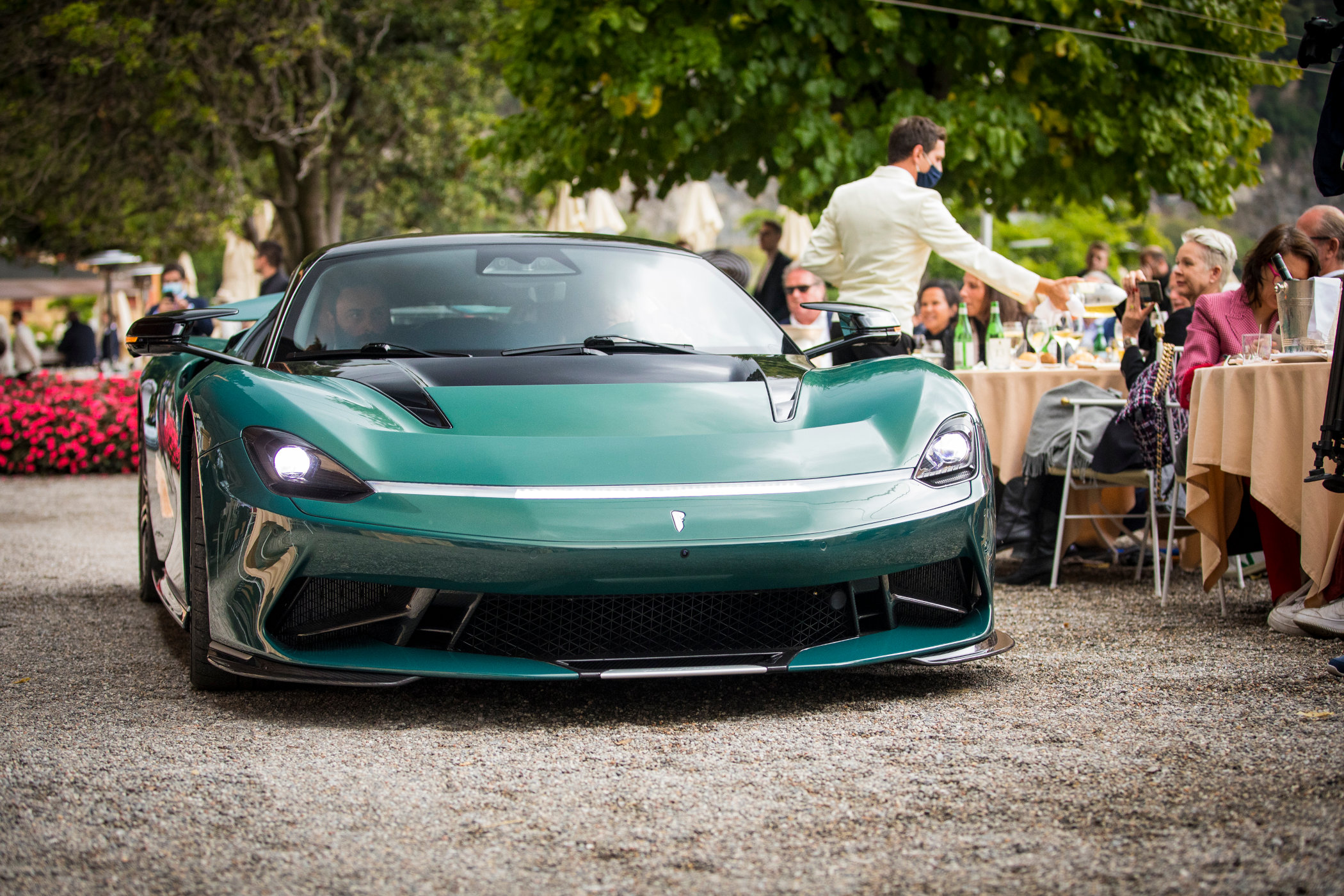
We return to the shores of Lake Como once again, but not to look at some of the world’s best vintage cars, but a futuristic EV hypercar instead. The Automobili Pininfarina Battista has been in the works for a couple of years and has now reached production-ready stages. One of the very first completed client-spec cars took top honours in the Concept Cars & Prototypes class during the Concorso. Reason enough for us to take a closer look as well in this latest instalment of The Petrolhead Corner.
First things first; this doesn’t come from the Carrozzeria Pininfarina design studio famous for sketching some of the most gorgeous Ferrari’s from the 1950s to the early 2010s. This comes from Automobili Pininfarina, a separate entity under the Mahindra Group which focuses on building EV hypercars. There are ties between the two though, as the Mahindra Group acquired the design studio in 2015 and set out to launch Automobili Pininfarina in 2018. Consider it a little bit like an architect working together with a builder both under the control of the same parent company. One takes care of the styling both inside and out, the other actually makes it into a car.
For the Concorso d’Eleganza Villa d’Este 2021, the Pininfarina Battista was listed as a 2019 prototype, the year that Automobili Pininfarina revealed the car for the first time. However, with two years of full-on development, the car has now reached the phase where clients can expect it to be delivered any day now. And being developed on the backbones of the Rimac Nevera, and in partnership with the Croatian company, it is not only a drop-dead gorgeous billionaires toy. Oh no, it comes with some serious performance figures to back it all up! In fact, the numbers on the Pininfarina Battista are quite insane;
- Zero to 100 km/h; under 2 seconds
- Zero to 200 km/h; under 6 seconds
- Zero to 300 km/h; under 12 seconds
- 1,900 horsepower & 2,300 newton meters of torque
- Top speed; north of 350 km/h
- Electric range; 500 kilometres (not driving it like a hooligan I bet)
The car on display during the Concorso d’Eleganza Villa d’Este was finished in a beautiful Verde Paradiso green paint, and features in this clip on YouTube:
All that is fine of course, albeit a bit mental for a road-legal car. I mean, only 30 years ago Petrolheads were in awe of cars with less than a third of the Battista’s power. Take the McLaren F1 and Bugatti EB110 Super Sport, for instance, both early nineties cars with about 620bhp. By 2004 the most powerful production car, the Koenigsegg CCR, had just over 800bhp and a year later Bugatti would be the first to pass the 1,000 horsepower mark. And now we’re approaching almost double that, thanks to the power of electrification.
Regardless of the debate if such a level of performance is needed, or even deemed safe on public roads in normal traffic, it’s utterly impressive really. And one of the biggest achievements for such cars is to make them handle like a normal road car. Going through quite a lot of YouTube car reviews, the one thing that stands out in pretty much every review of modern-day super- and hypercars is the ease to drive them.
Top Gear has had the chance to take a Pininfarina Battista for a spin, both on and off track. It looks docile, and easily managed in normal day to day traffic. And at the same time, blisteringly quick when you need it, especially on the track. From a standstill, the Battista takes off like a rocket. And believe me, I have felt the full grunt of a Porsche Taycan Turbo S in launch mode and was utterly gobsmacked by the acceleration. Considering the fact the fact that on paper the Battista is A LOT faster than the Porsche, I have a little sense of what this might feel like in a traffic light sprint.
As said, Rimac supplies more than just knowledge and skill to the Pininfarina Battista. It shares the battery pack and four electric motors (one for each wheel) with the Rimac Nevera. But where the Rimac is perhaps the geeky super-athlete, the Pininfarina is the Olympian dressed in a finely cut suit. Considering the history of cars penned by Pininfarina, the Battista might be a bit safe on design, as it shares some basic styling elements with other EV hypercars.
The mid-engine supercar look for instance, with a wide, low nose is comparable to others. Just compare the front to the Ferrari SF90 or the McLaren GT. Nevertheless, the Battista can hold its own against almost all of them as far as I’m concerned. The dramatic light bar running from left to right, that massive rear wing tucked in with the taillights when it’s not needed, and that massive rear diffusor just work. Sure, the odd bit here and there looks a bit funky. Just look at the mirrors, for instance. No doubt will it benefit the car’s aerodynamics but it looks a little off to me.
One of the quirkiest things EV performance cars have sparked is external speakers playing engine noises and other sounds to “mask” the EV hum. Surely it’s safer in traffic as an EV will surprise you from time to time due to the almost total lack of noise, but it feels a bit tacky, a bit cheap. In fact, it makes an EV super- or hypercar feel a bit fake perhaps. But there’s proper science behind it, as the Battista plays sounds in multiples of 432Hz which apparently is considered to be the “purest sound in the universe”. I’m not making this up, it’s mentioned in the Top Gear review above.
The interior is of course lavish. Leather covers the seats, and there’s plenty of carbon fibre as well. The steering wheel has all the buttons you need, while the rest looks properly clean. Almost all functions are integrated into the two touch screens left and right of the steering column. From here you can adjust the seats, steering position, air-conditioning and much more. And of course, it has multiple settings for the engine and drivetrain, ranging from Calma (calm and quiet) to Furioso (full-on track mode).
A total of 150 lucky owners will spend a minimum of USD 2,400,000 on their car, and for that level of money will be able to fully customize it to whatever they feel like it. Clear carbon fibre? Sure. Tan leather interior? Not a problem. Special one-off wheels? They have you covered, I’m sure of it. Painted or anodized aluminium trim? Why not! As result, no two will ever leave the Pininfarina’s production facility looking the same.
For more information, please visit Automobili-Pininfarina.com.

